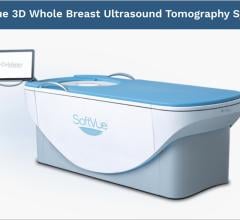
February 4, 2011 – Obese women may avoid mammograms because of pain and women under 60 may avoid the test because they are too busy, according to a study in the Journal of Women’s Health. The study, by Kaiser Permanente Center for Health Research was one of the largest to examine why insured women fail to complete mammograms.
It was funded by the National Cancer Institute.
Breast cancer is the most common cancer among women in the United States, with one in eight developing breast cancer during their lifetimes, and 46,000 dying from it annually. Although regular mammograms can reduce breast cancer deaths by more than 30 percent – and screenings are recommended every 1 to 2 years beginning at age 50 – nearly one-third of eligible women do not get regular screenings.
"These are important findings because, even though we know that mammograms can save lives, many women put them off," said Adrianne Feldstein, M.D., a senior investigator with the Kaiser Permanente Center for Health Research and lead author on the study. "Our study found that, even when women have access to health care, there are still barriers to getting this important screening test. We need to do more to understand these barriers and help women overcome them."
The study looked at 4,708 women aged 50-69 at Kaiser Permanente in Oregon and Washington who had gone longer than 20 months since their last mammogram and were reminded through postcards and phone calls that they would soon be due for the test. Researchers identified these women by looking at their medical records, which contained the date of their last mammogram. Researchers also examined physical and demographic information – including height and weight, age, race, length of time on the health plan and family income – to find out how these factors affected mammogram completion rates.
Characteristics associated with lower mammogram completion rates included being younger than 60, having a household income of less than $40,000, being obese and having had health insurance coverage for fewer than five years.
A subset of 677 women were mailed a survey asking why they hadn't completed their mammograms. About half – 340 – of these women completed the survey. The reasons they cited most often for not completing a mammogram included the test causing too much pain, being too busy and feeling embarrassed to have the test.
Nearly one-quarter of the women surveyed (24.7 percent) reported too much pain as a reason why they had not completed a mammogram. Obese women were nearly twice as likely as non-obese women to report pain as a deterrent (31 percent vs. 19 percent).
"We don't know why obese women report more pain with mammograms," Feldstein said. "One previous study suggests that obesity might be associated with a lower pain threshold. Nearly half of the women in our study were obese and obese women are more likely to get breast cancer so we need to find better ways to ensure that these women are screened."
Authors point out that their study has implications for helping health care systems reduce barriers to mammogram completion. Since obese women reported receiving the same amount of advice to get screened as non-obese women, and did not report feeling more embarrassed to get mammograms, it's unlikely that they would respond to more clinician-oriented interventions. The authors suggest that patient-controlled compression or the use of alternate screening technologies could be especially helpful to obese women.
Women under 60 were more likely to report being too busy to get a mammogram (19 percent vs. 6 percent). Authors say that younger women might be more likely to complete mammograms if health-care systems provided more opportunities for worksite screening and after-hours mammography appointments.
For more information: www.kaiserpermanente.org/


 July 29, 2024
July 29, 2024 








